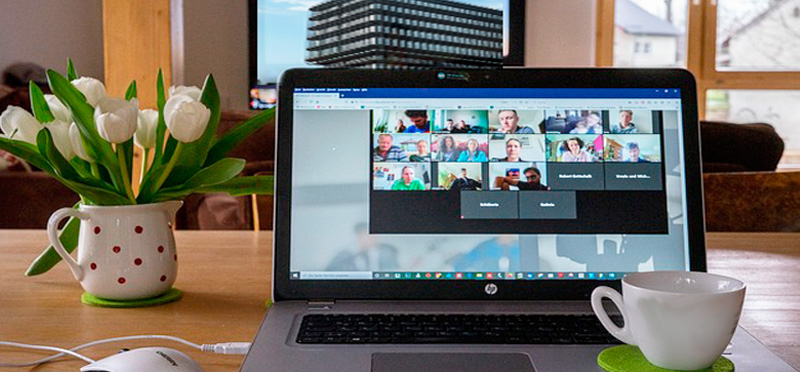EPO appeal proceedings by video - the rule?

Appeal proceedings by video instead of an EPO hearing with presence became common under Corona. But is the appeal procedure by video now the rule - and no longer the hearing in presence?
In recent EPO decision T 0618/21 (Videoconference/KÖRBER TECHNOLOGIES GMBH), the EPO declares the expediency of video conferencing to be the rule, even beyond the pandemic - and even against the will of the parties.
An interesting decision on the question of how the Board's discretion granted in Article 15a(1) Rules of Procedure of the Boards of Appeal (RPBA) 2020 is to be assessed in relation to the provisions of G1/21 and the end of the pandemic.
Appeal proceedings by video or presence?
Article 15a of the RPBA 2020 sets the rules for conducting oral proceedings in appeal proceedings by video. The decisive criterion is expediency. The Board thus has discretion in deciding to hold the oral proceedings by video conference, if necessary also against the will of the parties.
Just as relevant is decision G1/21. For in February 2021, Board 3.5.02 referred several questions of law to the Enlarged Board of Appeal, which ultimately resulted in decision G1/21. At that time, there was no rule as to whether and under what conditions oral proceedings could be held in the form of a video conference. Decision G1/21 said that, in principle, hearings by video or presence are equivalent.
But what applies if the parties or one of the parties rejects the appeal proceedings by video?
The facts
In the EPO decision Videoconference/KÖRBER TECHNOLOGIES this was the case.
The appellant opposed the hearing by video, the respondent (patent proprietor) agreed. The appellant argued that a hearing in presence was the standard case ("gold standard"), which could only be deviated from in exceptional cases. According to decision G1/21 a hearing could only be held as a videoconference against the will of the parties in the case of a general emergency, the appellant said. However, such an emergency no longer existed after the end of the pandemic.
Article 15a of the RPBA 2020 could not call this principle into question, which is why the Board's discretion granted by Article 15a(1) of the RPBA 2020 could not go beyond the provisions of G1/21.
EPO appeal proceedings by video: in general
The Board of Appeal disagreed with this reasoning and explained its opinion in the context of G1/21. The provisions of Article 15a of the RPBA do not contradict higher-ranking law, nor the main conclusions of the Enlarged Board of Appeal in decision G1/21, according to the Board of Appeal.
The term “appropriate” implies that the format of the videoconference appears to be fundamentally suitable for achieving the purpose of the oral proceedings and, moreover, also reasonable (relevant).
The value of oral hearings is that they can clarify the subject matter of the dispute and also the position of a party. The fact that oral proceedings conducted as a video conference can in principle achieve these goals was said by the Enlarged Board of Appeal in decision G 1/21 under points 33 to 43. It was also made clear there (see grounds 40) that oral proceedings in the form of a videoconference are to be regarded as a fair procedure.
And that the reasons for holding a hearing as a videoconference are not limited to those specifically related to the pandemic in G1/21, was inferable from the phrase "in the event of a pandemic" used in grounds 49, the Board of Appeal explained.
Therefore, any circumstance could be considered a "good reason" within the meaning of G1/21 justifying a videoconference. According to the Board of Appeal, this includes, inter alia:
- travel time incurred could be "more usefully" spent
- costs for travel and overnight stays can be saved
- redundant CO2 emissions and environmental damage caused by the journey can be prevented
In the Board's view, a videoconference is therefore, both as a rule and in the present case in particular, an equivalent alternative to a hearing in person.
In addition, the EPO had expanded its own IT in the meantime, with its own data centre and increased network bandwidths. Also, in spring 2021, the chambers were still using Skype (with which, for example, no screen sharing was possible), but now Zoom. The initial requirement of decision G1/21 (namely the difference in quality between videoconferencing and face-to-face hearings) was therefore no longer met anyway.
Video hearing? A case-by-case decision
The Board said that even at the present time, there may still be situations in which a video hearing cannot be regarded as equivalent to a face-to-face hearing; this could be the case in hearings in the course of which a sample is to be inspected and also in very complex situations.
The Board of Appeal added that the criteria which the Boards may apply under Article 15a of the RPBA 2020 cannot ultimately be answered in absolute terms, but must be decided on a case-by-case basis. The Board just follows this path and attempts to identify and structure the relevant criteria from the Board's perspective.
Do you have questions or requests regarding patent protection, also in relation to defending or challenging patents? We are an experienced law firm with a highly qualified team.
You can reach us by phone at +49 69 69 59 60-0 or info@kollner.eu.







